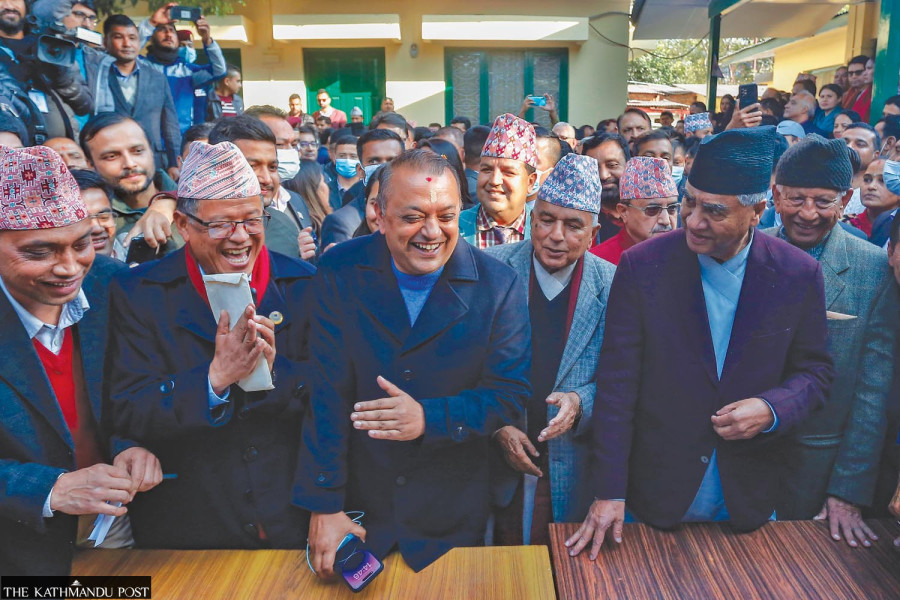Editorial
Move over, pops
Gagan Thapa may have lost the Congress election, but he claimed a moral victory.
In choosing 76-year-old Sher Bahadur Deuba over 46-year-old Gagan Thapa as its parliamentary party leader, the grand old party Nepali Congress has shown what it is—grand and old. The fact that the recent elections called for the transfer of power to the young generation seems to have been lost on Nepali Congress parliamentarians as they defeated a youth icon in favour of a septuagenarian who has done precious little in his five terms as prime minister. Thapa’s resounding victory in the general elections, partly aided by his pre-election announcement that he would claim the prime minister's position, could not ensure his win within the parliamentary party. Having secured over two-thirds of the total 89 votes, Deuba has established that he still has considerable clout in the party; Thapa, meanwhile, has shown that he has immense courage.
That Thapa would lose the contest was almost certain. Yet he fought to make a point, to show that he had the courage to fight a losing battle. And in doing so, besides cementing his position as next Congress leader, Thapa has also clinched a moral victory. Immediately after the results were announced, he told the media he had expected better results, even hinting that those who had pledged allegiance to him had changed their minds for possible ministerial positions. Partisan betrayal is hardly new to Congressis, although the likes of Thapa give such practices the euphemism of "freedom of thought". To use an oft-repeated cliché in Nepali politics, Thapa lost the election but won the hearts. But more than Thapa, there are others who have faced moral defeat in the election, starting with Ram Chandra Poudel, who until last week was claiming he deserved to be prime minister.
Joining Poudel in the camp of eternal whiners are the second-generation leaders who saw no alternative to Deuba even though they had previously pointed out the need for a generational shift in the party. In failing to stand on their own or stand up for the transfer of power to the younger lot, they lost the plot and made themselves irrelevant. Instead, the triumvirate of Bishwo Prakash Sharma, Pradip Poudel and Dhan Raj Gurung—although Gurung’s role in this election is being questioned by some within the Thapa camp itself—has managed to establish that the political narrative in the Congress will be set by third-generation leaders despite their drubbing in the parliamentary party election.
Notwithstanding the results, the Congress has shown through its parliamentary party election that it is one of the few outfits in Nepal to allow younger generation to rise and thrive. There certainly is partisanship within the party, but there is ample scope for alternative, even dissenting, voices. The party is still a long way from achieving the ideals of internal democracy. However, it is the only party among the troika of the established ones—including the CPN-UML and the CPN (Maoist Centre)—that held a democratic election for the parliamentary party leader. While intra-party democracy has been on a constant slide in the UML ever since Oli’s 2014 election as its chairman, the Maoist Centre, under Pushpa Kamal Dahal, does not even put up a pretence of intra-party democracy.
As the Nepali Congress moves on to the next stage of government formation, the big losers are the second- and third-generation UML and Maoist Centre leaders who handed over the post of parliamentary party leader, without so much as a whimper, to their supreme leaders, KP Sharma Oli and Pushpa Kamal Dahal, respectively. For them, the takeaway from the Congress parliamentary party election and Gagan Thapa’s principled challenge is this: Dignity is in fighting and losing rather than in fleeing the ring even before the fight begins.




 18.12°C Kathmandu
18.12°C Kathmandu














